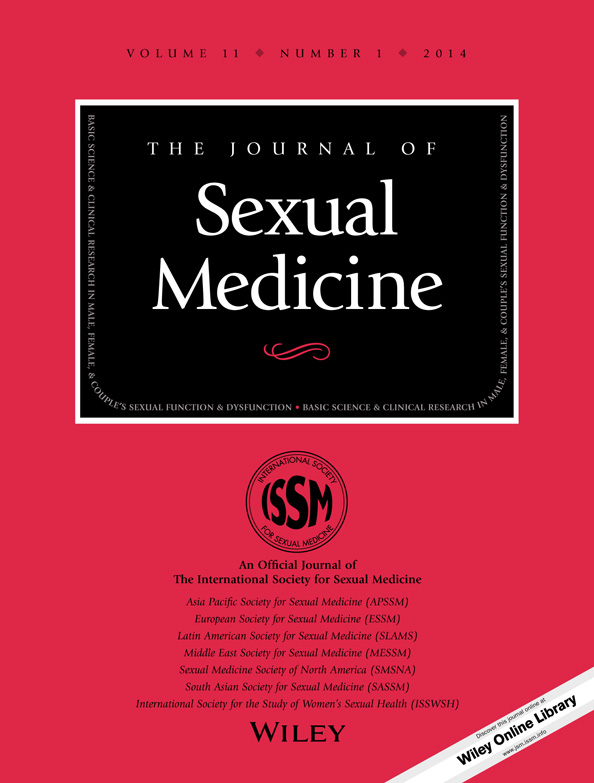Sexual Function in Post-Stroke Patients: Considerations for Rehabilitation
Abstract
Introduction
While the rehabilitation goals of post-stroke patients include improving quality of life and returning to functional activities, the extent to which sexual activity is addressed as part of the standard rehabilitation process is unknown. Moreover, the specific sexual concerns of stroke patients, including the effect of stroke on intimate relationships and sexuality of the partner, the ability to physically engage in sex, and the effect of psychological components such as role identity, depression, and anxiety on sexuality, all warrant examination by rehabilitation professionals.
Aim
The aim of this study is to examine the existing literature on sexuality and stroke patients in order to better understand how the sexual lives of stroke patients and their partners are affected and to provide recommendations to rehabilitation professionals for addressing sexuality as part of treatment.
Methods
Narrative review, PubMed, PEDro, ISI Web of Science, and Google Scholar databases (inception—December 2012) were searched for the key words “stroke,” “sexual dysfunction,” “sexuality,” “quality of life,” and their combination. All relevant articles in English and secondary references were reviewed.
Main Outcome Measures
We report the results of the literature review.
Results
Sexual dysfunction and decreased sexual satisfaction are common in the post-stroke population and are related to physical, psychosocial, and relational factors. However, they are not adequately addressed in post-stroke rehabilitation.
Conclusions
As sexual function is an important component to quality of life and activities of daily living, physicians and rehabilitation specialists, including physical, occupational, and speech therapists, should receive training in addressing sexuality in the treatment of post-stroke patients. Sexologists and sex therapists should be an integral part of the rehabilitation team. Rosenbaum T, Vadas D, and Kalichman L. Sexual function in post-stroke patients: Considerations for rehabilitation. J Sex Med 2014;11:15–21.




